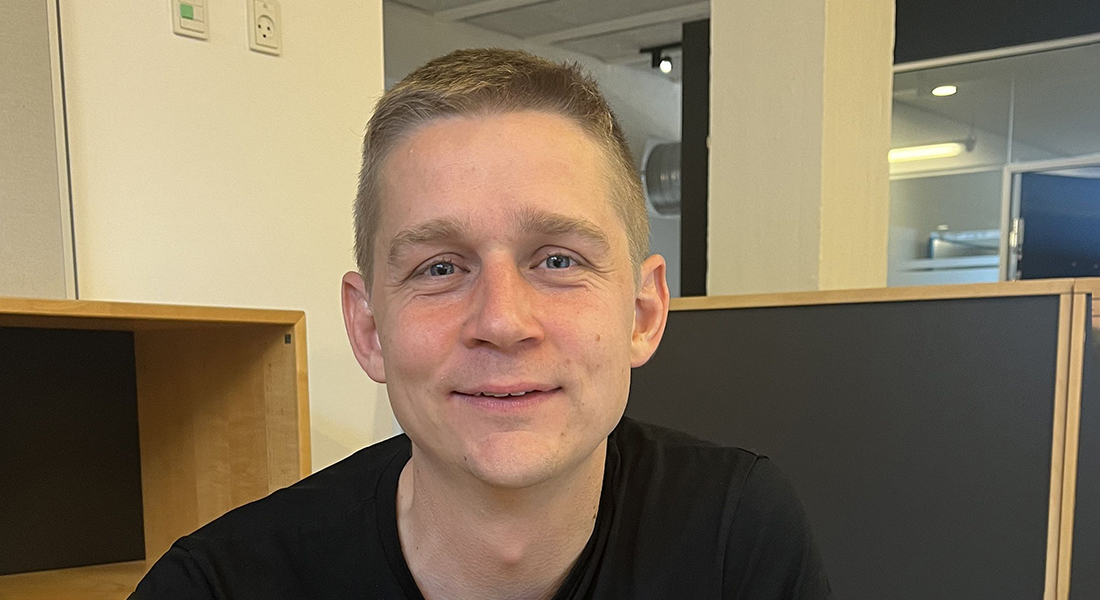Read more and apply here.
Tyge, Administrative Officer in the Danish Competition and Consumer Authority

Meet Tyge, Agricultural Economics alumnus, and read about his career path since he earned his master's degree in 2018. Own photo
"A student job gives you valuable insight into how your life as an economist will be after you have graduated."
What do you do?
As an administrative officer in the Danish Competition and Consumer Authority which is a government agency under the Ministry of Industry, Business and Financial Affairs, we work with work with the utilities sector in my department – specifically the water sector, which is a monopoly sector.
my colleagues and I are seeking to introduce an artificial competitive pressure, so consumers get good, cheap water.
This means there is a risk as consumers that we end up paying too much for our drinking water. To ensure this does not happen, my colleagues and I are seeking to introduce an artificial competitive pressure, so consumers get good, cheap water. This is done in part using a financial (benchmarking) model. I am project manager for the group working on developing this model. In addition to being a project manager, I am working on developing new legislation in this area. This involves helping to transfer the agreements made by politicians into actual legislation.
How did you end up in your current job?
Frankly, it is essentially a matter of chance how I have ended up working in my particular area. During my studies, I held various student jobs, all in the financial sector. But towards the end of my studies, I stumbled upon a job with the Danish Competition and Consumer Authority, with a job description that matched a course I had completed on the programme and which seemed exciting.
When I started my studies, I had no clear plan for where I would end up. I did not know what I wanted to work with, I just thought the degree programme looked exciting.
Given that it was also within the utilities sector, which I find interesting, I decided to apply for the job. Following my studies, I was employed full time in the same place. I have since held two other jobs as a consultant in private companies. I got these based on the experience I had gained in my first jobs. It was important to me to try out something different, so I took the chance when it arose and changed job.
I have now returned to my first workplace – albeit in a different position. Even though I am back where I started, my intervening jobs have given me good experience and a broader perspective that I am pleased to have. My career path has been largely ‘random’. When I started my studies, I had no clear plan for where I would end up. I did not know what I wanted to work with, I just thought the degree programme looked exciting. I think my lack of a plan has left me open to trying new things when the chance arose. It has also sent me in different job directions during my studies.
I was sometimes worried at the time that I had too little direction. I now see it as a strength in my work, where I often draw on knowledge I have acquired through courses and jobs that are not directly relevant to my job. I was active in the student environment during my studies, and went on an exchange to USA for one semester. I believe both have helped shape me as a person and given me insight that I benefit from today. They also helped make my studies great fun!
Which academic skills do you use most in your work life?
I got my first (and current) job because of a specific course on economic benchmarking that I had done during my studies, which is not offered very broadly.
I got my first (and current) job because of a specific course on economic benchmarking that I had done during my studies, which is not offered very broadly.
I am now project manager for the group that works with this particular benchmarking model. So I draw on the specific knowledge I gained on this course every day. The fact that we acquire these competences in my degree programme means that I work with several people with the same background as me.
A good advice: What do you want to tell a prospective student?
That you do not have to have a clear direction during your studies, and that a student job gives you valuable insight into how your life as an economist will be after you have graduated.
Apply and read more about the international MSc degree Agricultural Economics.
